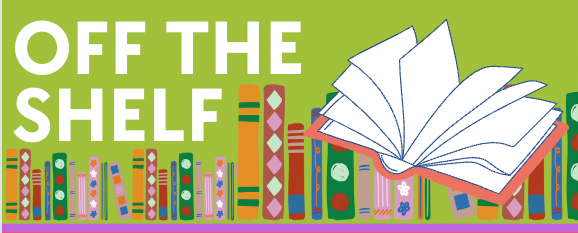
Starr Library’s Book Club read widely in 2023, from lesser-known works in translation to the book everyone seemed to be talking about. Below some of our members offer reviews of their favorite reads from last year. If you’re interested in joining this group of engaged, smart, and thoughtful readers, send a note to mmontalbano@starrlibrary.org.
January – Horse by Geraldine Brooks
The Library Book by Susan Orlean
Full of unexpected nuggets of humor, pathos and intrigue, this book was a compelling read in more ways than one. The plot revolves around a famous fire at the Los Angeles Main Library in 1986 and the investigation that ensued. That may have been the hook for this story but the author weaves an intricate tapestry of memorable characters and situations before, during and after the fire. Susan Orlean has a talent for collecting piles of obscure details about facts that, in other contexts, might very well have been considered either burdensome, or downright boring. Not true about this book. Orlean’s impeccable research combined with her vivid storytelling makes it a fascinating read. Clearly she loved libraries from the time when she was a young child. This book will remind the reader of all the reasons libraries have and continue to make a difference in a community. If I had not joined the library book club I probably would not have chosen to read this book. I am very glad I did. I could not put it down. – Grace McKay
The Library Book by Susan Orlean and Midnight Library by Matt Haig
I loved The Library Book and The Midnight Library because they each brought a different sort of depth and whimsy to the world of libraries, librarians, other library staff and the breadth of people who are connected to libraries in other ways. And, in keeping with my choices, something to celebrate Starr Library, its amazing staff, programs, and community! –Eve Wood
Rosemary’s Baby by Ira Levin
Rosemary’s Baby may seem at first like “just a horror novel” (and later movie) but is also a chilling social commentary about the restricted roles of women, as highlighted by the main character. Even as we are screaming “don’t do it!” we see how little choice Rosemary has in her own “privileged” life. Societal expectations, obligations, and isolation all play a part in her spiral towards her fate. Even if you have seen the movie, you have more to learn and enjoy in this novel published in 1967. Chilling even when you already know the ending! –Jacquelyn Elbel
Persepolis: The Story of a Childhood by Marjane Satrapi
We tend to look at historical events in broad terms and focus on how the adults are affected by them. In Persepolis allows us to see the Iranian revolution through her own young and idealistic eyes. Childhood developmental stages influence the sense she can make of the tragic and frightening time period. Her format of a graphic novel presents her experience in a much different way than we normally process these events. My daughter read them in middle school and was haunted by some of the content–as we should be by socially catastrophic events and their ripple effect through normal people. I highly recommend this book! – Jacquelyn Elbel
Drive Your Plow Over the Bones of the Dead by Olga Tokarczuk
This book has not left my mind since we read it. A literary mystery with a breathtaking ending, it’s so fresh that I couldn’t believe our discussion was all the way back in May when I went to compile our list of 2023 books. Janina is a protagonist unlike any I’ve encountered before; she’s dark and righteous, an anti-authoritarian feminist, largely solitary, and as obsessed with animal rights activism as she is astrology and translating William Blake poetry into Polish. Just stunning, in every sense of the word. -Michelle Montalbano
The Copenhagen Trilogy by Tove Ditlevsen
A gutting story and a remarkable achievement of one of Denmark’s standout 20th century literary talents. Ditlevsen’s detailing of her childhood, coming of age, and marriages culminates in a devastating account of her struggle with substance abuse. It is both psychoanalytically astute and highly conscious of the roles class and political realities play in shaping one’s circumstances. You are reminded again and again of the remarkable self-awareness it must have taken to record such a lucid account of addiction and its destructive presence in her life. Sadly, Tove Ditlevsen’s life ended all too soon, but the mark she left on the world is profound. -Michelle Montalbano
